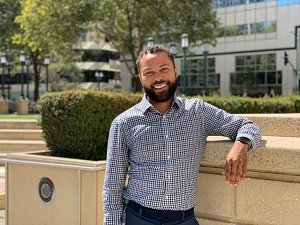 Tuesday, September 24, 2024
Tuesday, September 24, 2024  Tuesday, September 24, 2024
Tuesday, September 24, 2024 
As blogged on CityLab.com, a woman with a cane stood facing the corner of a Bay Area Rapid Transit (BART) station. She was blind, and trying to make her way out through an exit. But the gate wasn’t where she thought it would be.
Warren Logan, an Oakland-based transit policymaker, approached her and asked if she needed help. She told him that she was headed to the LightHouse for the Blind and Visually Impaired center. After years of traveling into and out of San Francisco, she’d gotten the commute there down to a science. Hop onto the fifth car. Get out at Civic Center station. Turn left. Take an escalator up. Walk three feet to the left, and through the gate. But this time, she’d followed the path, and gotten stuck in a corner.
Advertise YOUR business on Construction Links Network – Download the media kit
What must have happened, Logan finally realized, is that on this day she’d boarded an eight-car train instead of the usual 10-car train. That small discrepancy meant she’d gotten on the wrong escalator, and ended up walking three feet left into a wall.
BART operators take care to place their doors in precise, consistent positions every time they park, but sometimes models and placements change. Conductors announce approaching stops, but sometimes the sound is garbled. These variables are tiny, but they matter.
For Logan, who became Policy Director of Mobility and Interagency Relations for the Mayor’s Office of Oakland in July, this interaction was a breakthrough for him. “That is what I remind myself every day about transportation planning,” he says. “There are people who fundamentally depend on the details.” And it’s these personal stories he wants to keep hearing.
One place he doesn’t hear enough of them is at traditional public forums like community meetings, he says. Research shows that the people who speak in City Hall forums are generally whiter and wealthier homeowners, who are likely to oppose things like new development. But in Oakland, Logan is working with the city administration to create new pathways for folks from all backgrounds to participate.
CityLab sat down with Logan in his Oakland City Hall office to discuss what he thinks are the right ways to get the community engaged in city policy-making, why Oakland embraced scooters, and how to start measuring the joy of taking transit, not just the efficiency. The interview has been edited for clarity and condensed.